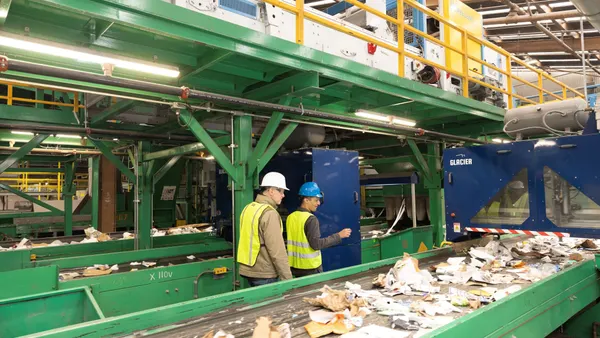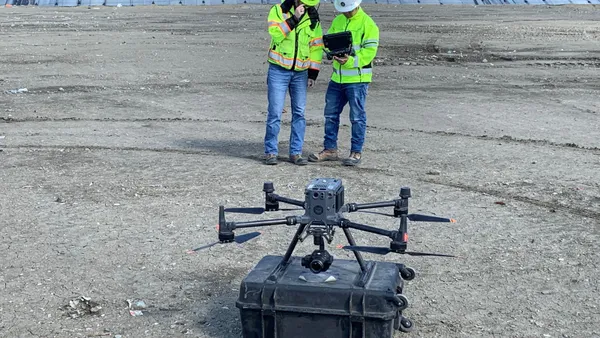UPDATE March 2, 2018: The Augusta, ME City Council voted unanimously Thursday to spend $3 million to build a landfill-gas-to-electricity system at the Hatch Hill Landfill, as reported by Central Maine.
The proposed generation system has increased from 350-kilowatts to 550-kilowatts, and is set to bring in higher-than-expected revenues, in part because it is going to be installed in a newer section of the landfill.
The current plan is for the city to sell electricity to Central Maine Power Co., and the city will be credited for electricity use at city-owned buildings.
City officials said the project will pay for itself in 11 years; the landfill is expected to reach capacity in about 15 years. Landfills continue to produce methane for years after they’re closed, though, so the gas-to-electricity project will likely continue after the site is covered.
Dive Brief:
- Augusta, ME city councilors are expected to vote Thursday on whether to expand the city's methane collection program to the active portion of the Hatch Hill Landfill, as reported by Central Maine.
- If approved, the city would spend $350,000 from an already-existing reserve fund of $6.08 million — so the expansion would have no direct cost to taxpayers or the landfill's operating budget. The reserve fund is collected from tipping fees and other charges. A more comprehensive plan, to convert the captured LFG to electricity, is estimated to cost $2 million.
- The Hatch Hill Landfill has been open since 1952 and has a projected remaining capacity of 13 years. The closure liability cost is estimated to be $10.66 million.
Dive Insight:
All landfills are required to mitigate their emissions, and collecting gas to be burned for electricity or sold as CNG is an effective way of generating revenue from those mitigation requirements. Augusta's interest in expanding its LFG collection tracks with an ongoing trend of more landfill operators looking for more ways to generate revenue and operate in environmentally-sound ways.
However, projects need to be considered carefully, especially since natural gas from other sources (like hydraulic fracturing) is cheap — so it is possible that the high initial investment in equipment for converting LFG may not be worth it. That being said, local governments which invest in LFG projects can see significant savings on electricity costs and, in some cases, even make a profit selling off collected gas.
Investing in the infrastructure to collect methane from still-active landfills may be costly, but if those sites have a significant amount of capacity available, likely worth the cost. Even though the city would not have to change the operating budget to build the capture equipment, it will be an interesting case to watch and see how quickly the revenue from collecting, selling and burning gas matches the initial cost.
The case also serves as a reminder as to why it's important to consider post-closure care from the early stages of landfill operation. Maintaining a site for decades after it closes can be an expensive affair, but with careful planning, there are opportunities for revenue — like gas collection and generating electricity from solar panels — that can offset those costs.









